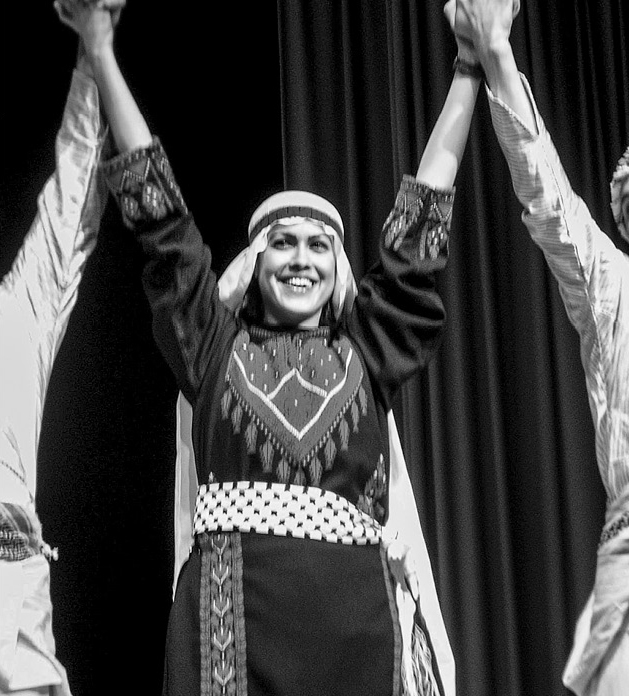Palestine Education

Nadine Hassassian, of Beit Jala, Central West Bank, Palestine.
When it came time for the $1 million Global Teacher Prize to be awarded in 2016, the accolade didn’t go to a representative of Finland’s world-renowned school system, to a teacher from Singapore’s table-topping academies, or one from Silicon Valley’s tech-lite elementary schools. Instead, the winner was a woman who had grown up in a Palestinian refugee camp, and whose classroom provides a refuge for pupils who often face a dangerous and unstable world outside it.
Hanan Al Hroub was selected out of eight thousand candidates, winning recognition for her unique approach to working with children traumatized by their experience of living in violence in the West Bank. At her school near Ramallah, her approach revolves around games and play with six- to ten-year-olds, with teaching methods ranging from class singing to using balloons to help solve math problems. The methods were first developed after her family was shot at in their car by Israeli soldiers at a checkpoint, and she was left struggling to help her children cope with the traumatic aftermath. “Children are deeply affected by their environment,” she has said. “I want to provide a safe environment for learning. I cannot influence the wider environment but I can influence the child. This is my philosophy.”
Ever since, Hroub has become the global face of Palestinian education, the symbol of an important tradition that is essential to the Palestinian way of life. As a people displaced and dispersed, facing an unstable present and an uncertain future, Palestinians know there is only one way to ensure that their history, culture, traditions, and identity make it to the next generation: through education. This has been true since the establishment of the State of Israel on historic Palestinian land, during which an estimated 750,000 Palestinians fled or were expelled—losing almost everything, but never the ability to educate their children and give them the best chance in life. Education is valued as one of the ways to survive and fight back, a key to the future as well as one to unlock the past, and make sense of the present.
Talk to an educated Palestinian and they will often tell you about the significant sacrifices they, and their families, made to get hold of a degree: being sent abroad by parents who know they may never get to see them again; living with their whole family in cramped conditions and working night jobs just to be near a university; taking almost a decade over a degree that should only last a few years, because of the disruptions and challenges they have faced along the way. At home, makeshift classrooms pop up almost immediately to replace those lost when schools are bombed. (An estimated 180 of Gaza’s 690 schools were damaged by Israeli bombing during the summer of 2014, adversely impacting the education of almost half a million children. Education infrastructure is also heavily reliant on foreign aid, and as such subject to changes in the political landscape.)
Yet despite the shortages and the challenges, Palestinians are by many measures among the world’s most educated people. Gaza and the West Bank have one of the highest literacy rates in the Arab world, at 96.9 percent, while illiteracy in adults over the age of fifteen fell from 13.9 percent in 1997 to just 3.7 percent by 2013. Moreover, the enrollment rate of students in higher education increased by 940 percent between 1993 and 2011, and Gaza is also home to more PhDs per capita than almost anywhere in the world.
That has made education one of the most important Palestinian exports: so many people I encountered across the Middle East had been taught by Palestinians, who are called upon across the Middle East and indeed the world as teachers of unique renown. Hearing a Palestinian teacher at work is something special: you experience a combination of pure passion and extraordinary knowledge. I have never been more impressed by a speaker than when I heard my friend Nadine Hassassian speaking at the London School of Economics, with more conviction and clarity at the age of twenty-one than most world leaders can muster.
Yet despite the quality and prevalence of education, for many Palestinians the reality after graduating is often a bleak one. Almost 38 percent of male graduates, and 72 percent of women, were unemployed in 2017. In Gaza especially, mostly closed borders on both the Egyptian and Israeli sides severely limit the employment opportunities for young and highly educated Palestinians.
In many ways that grim reality reinforces the importance of education. Palestinians may be denied many of the essential rights that we take for granted in other parts of the world, but nothing can take away their ability to gain for themselves and their children the best possible education. The right to learning—the sharing of information, tradition, and expertise—is one that remains sacred and prized. Whatever else may be taken away, education is always something to hold on to.